Why We're Doing This: Part One
When I first traveled to Uganda, it didn’t take long to notice the bicycles.
Certainly that’s due to my acute case of perception bias towards bikes — I notice them everywhere — but also because bikes are plentiful in Uganda. It’s more of a walking country — there’s no Ugandan love affair with the bicycle, as there is in Rwanda — but bicycles are liberating in a land where school, commerce and care are often many kilometers away, and we thus see them in cities and in remote villages.
We once watched a young girl pedaling a bike much too large for her and missing pedals — she’d apply her sandaled feet directly to the axles — to a village well, where she filled a massive water jug, strapped it to a rear rack, and after gathering momentum down a small hill, jumped onto the chest-high saddle and rode away. Bike plus water surely weighed more than she did.
We’ve watched fathers porting kids to school, three deep on a rack behind him, as well as bike commuters, pedaling to office jobs in suits with evident ease, even amid the sub-Saharan humidity. Cyclists in Uganda seem usually to be delivering more than themselves: on shoulders, in plastic bags dangling from handlebars, on all matter of front and rear racks, and in jury-rigged sidecars and trailers, we’ve spied massive bunches of bananas, chickens both alive and dead, more and more water jugs — and several times, plastic chairs stacked several feet above the rider’s head.
Twice I’ve seen kitted cyclists out for training rides, somehow withstanding the smog and the alarmingly uneven surface. And once — just once — I watched someone, a boy of about 12, simply enjoying riding a bicycle: I followed as he swung from a dirt path to a modest road, took a few pedal strokes, and stood as he raced downhill.
The bikes themselves are typically simple, with a single gear and friction brakes, black or gray. Occasionally we’ll notice some flair, likely a point of pride for the owner.
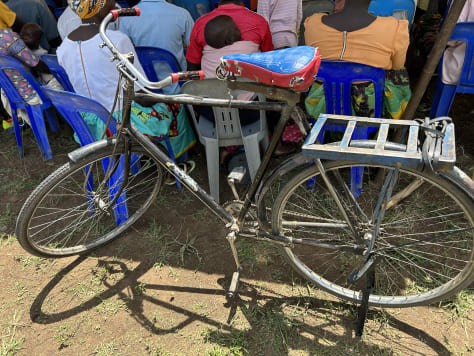
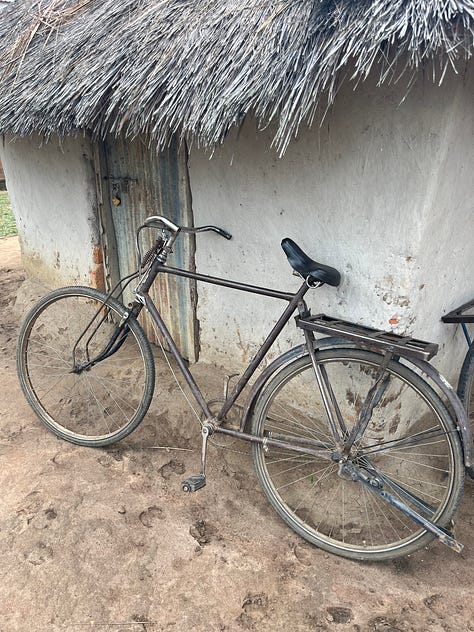
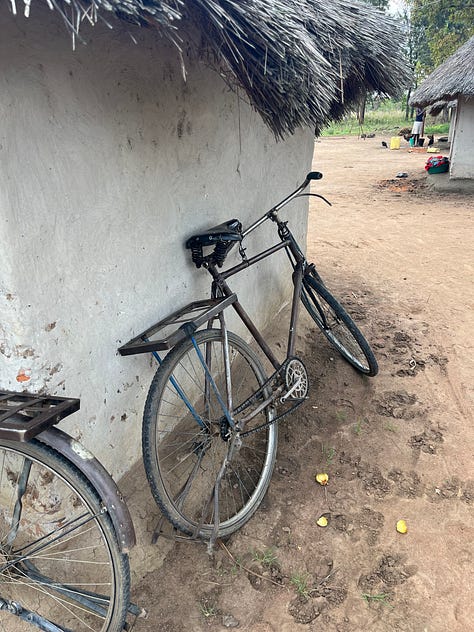
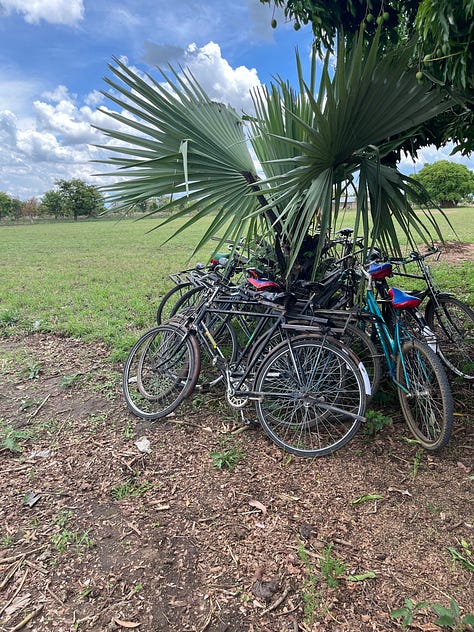
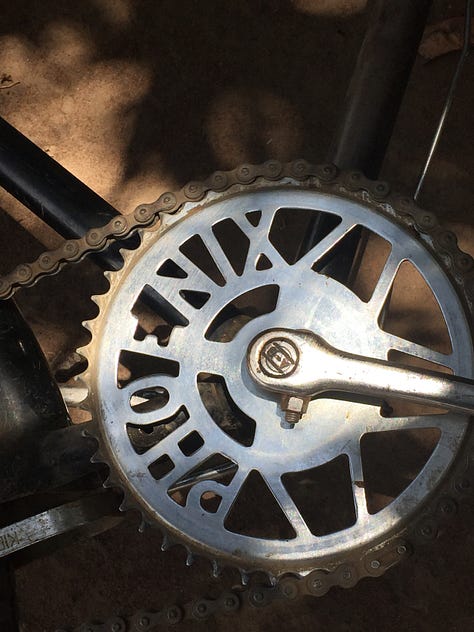
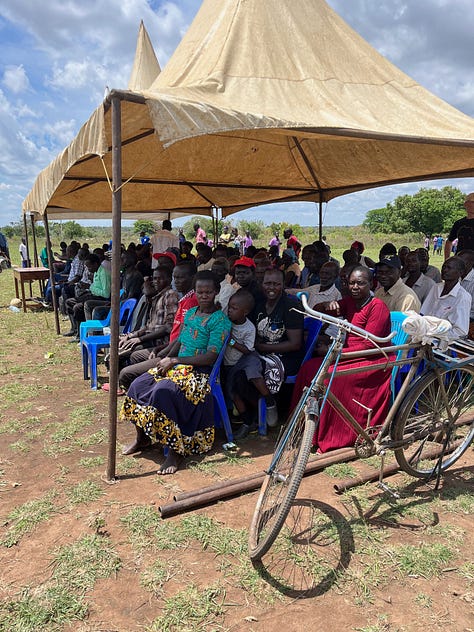
But bikes in Uganda are almost never about aesthetics, fitness, or the joy of motion; they’re utilitarian, a means of conveyance.
Several organizations — perhaps dozens — exist to get bicycles to people in developing countries. There’s Bikes for the World, Bicycles for Humanity, Bikes Not Bombs, World Bicycle Relief, and again — many others.
88bikes operates differently from most of these: Rather than ship used or purpose-built bikes from the U.S. or other western nations to Africa, Central America, or South Asia, 88bikes sources bicycles locally, purchasing them from local shops or dealers. They fix them up to assure quality, and then — simply — pass them to women and girls, especially those who have been victims of trafficking or violence.
Their motto and their “ask” couldn’t be simpler:
She can go anywhere.
Give a girl a bike.
I learned about 88bikes from a close friend a few years ago, and realized there might be potential for a partnership with Achon Uganda Children’s Fund (AUCF), the organization my dad co-founded and that we’ve run for years. In December 2023, 88bikes delivered 65 bicycles to the clinic that AUCF operates in remote Northern Uganda; 35 would be ridden by clinic staff, delivering medicine and medical education to even more remote villages, and the remainder would go to girls living in those villages.
This was not the first time 88bikes served our region of Uganda: a woman living nearby, Alice, learned about the 2023 delivery event at the clinic, and pedaled her own bicycle there — the one she’d received from the organization 17 years earlier. She also brought a photo of herself as a young girl; in the photo she’s holding the card she’d received from 88bikes, the type that every girl receives, bearing the name of the person who had donated $88, and thus the bicycle.
The bike was — of course — worse for the wear, but it still worked. Over those 17 years Alice had ridden it to school, to market, and to work, as had her father and three brothers. She reported that the bike had, indeed, changed her life: It had softened barriers, and made opportunities achievable. It had expanded her world and her potential.
And she could still ride it.
Alice inspired the vision for our upcoming trip to Uganda. I’m going to skip writing about pro cycling for awhile, even with the Vuelta a España going on. Instead, I’ll next lay out our plans — actually, I better call them our hopes — for our trip. For now, I’ll write: If Alice and her family can ride a bike like that for 17 years, we can surely ride them for a few rather long days.
Remember that subscription fees for this Substack are passed on to 88bikes and Achon Uganda Children’s Fund.


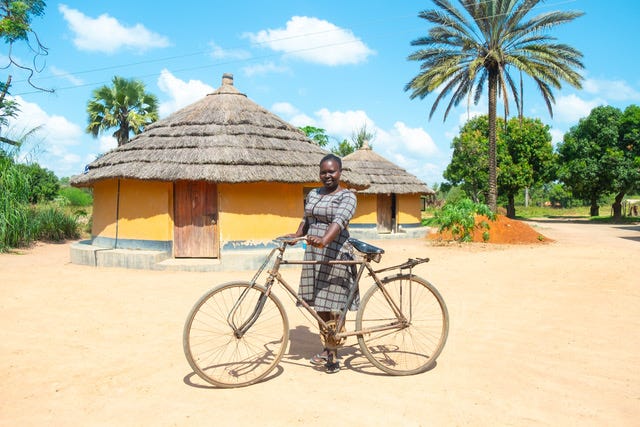
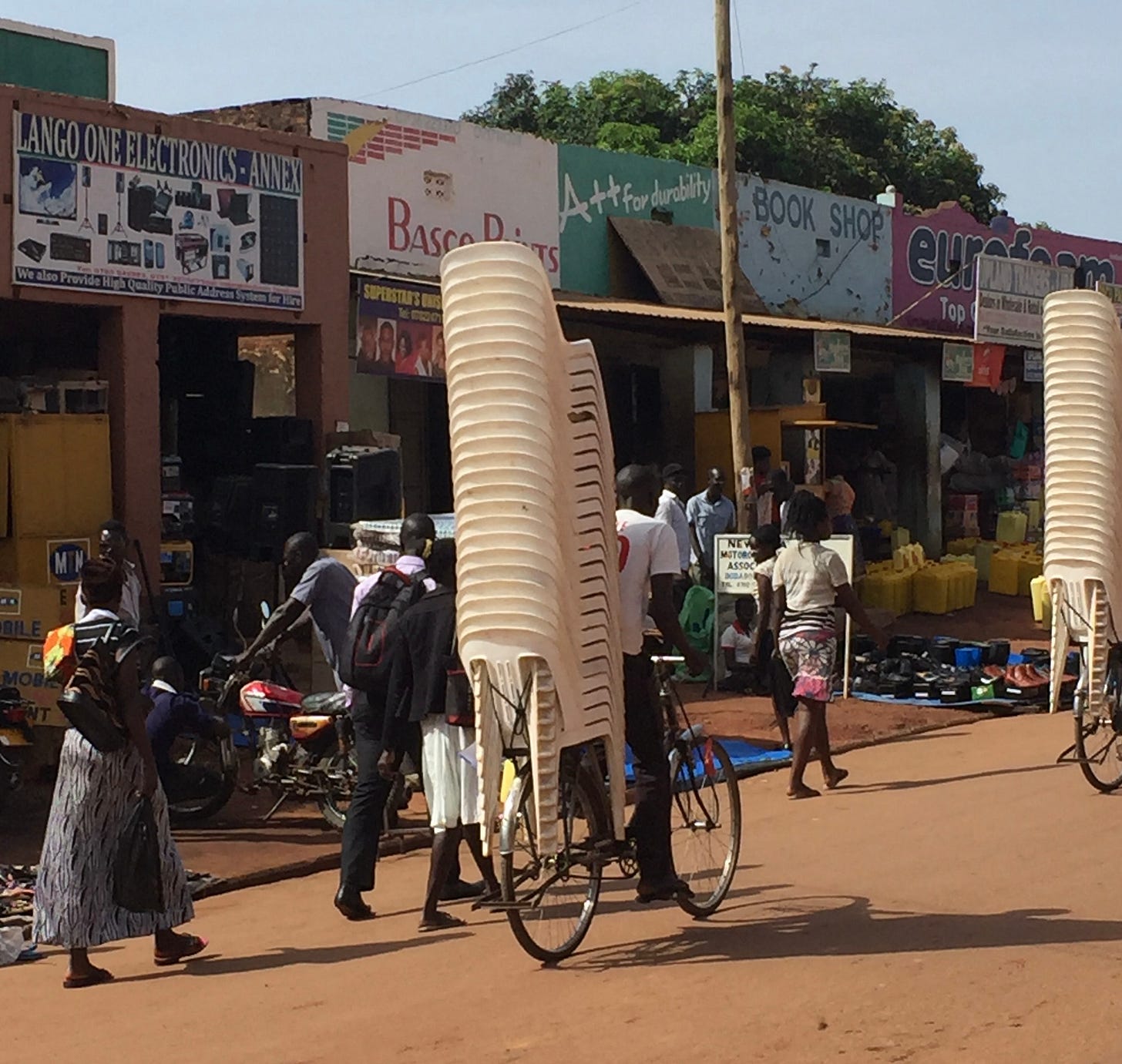
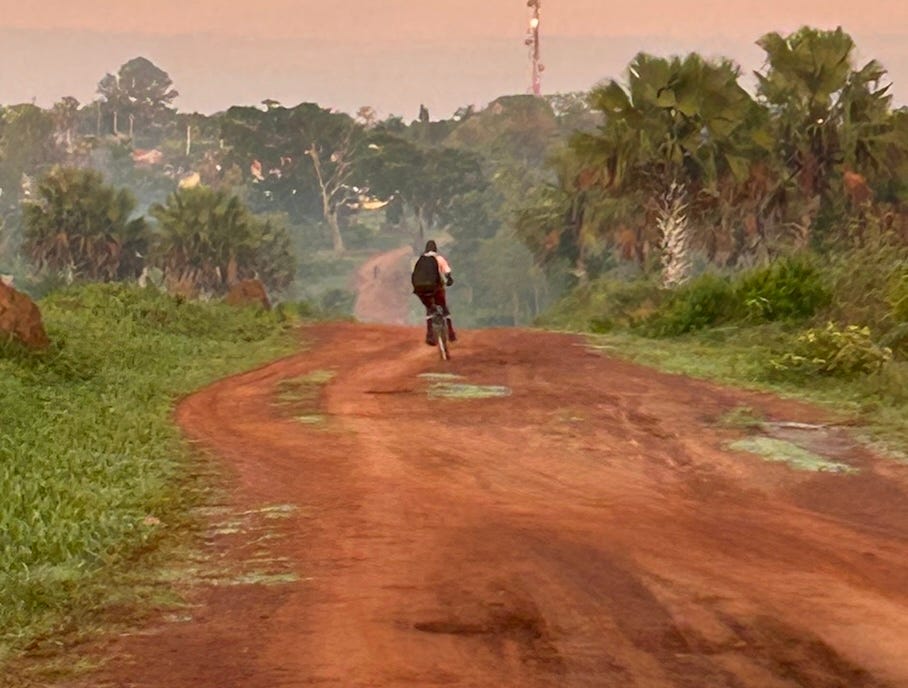
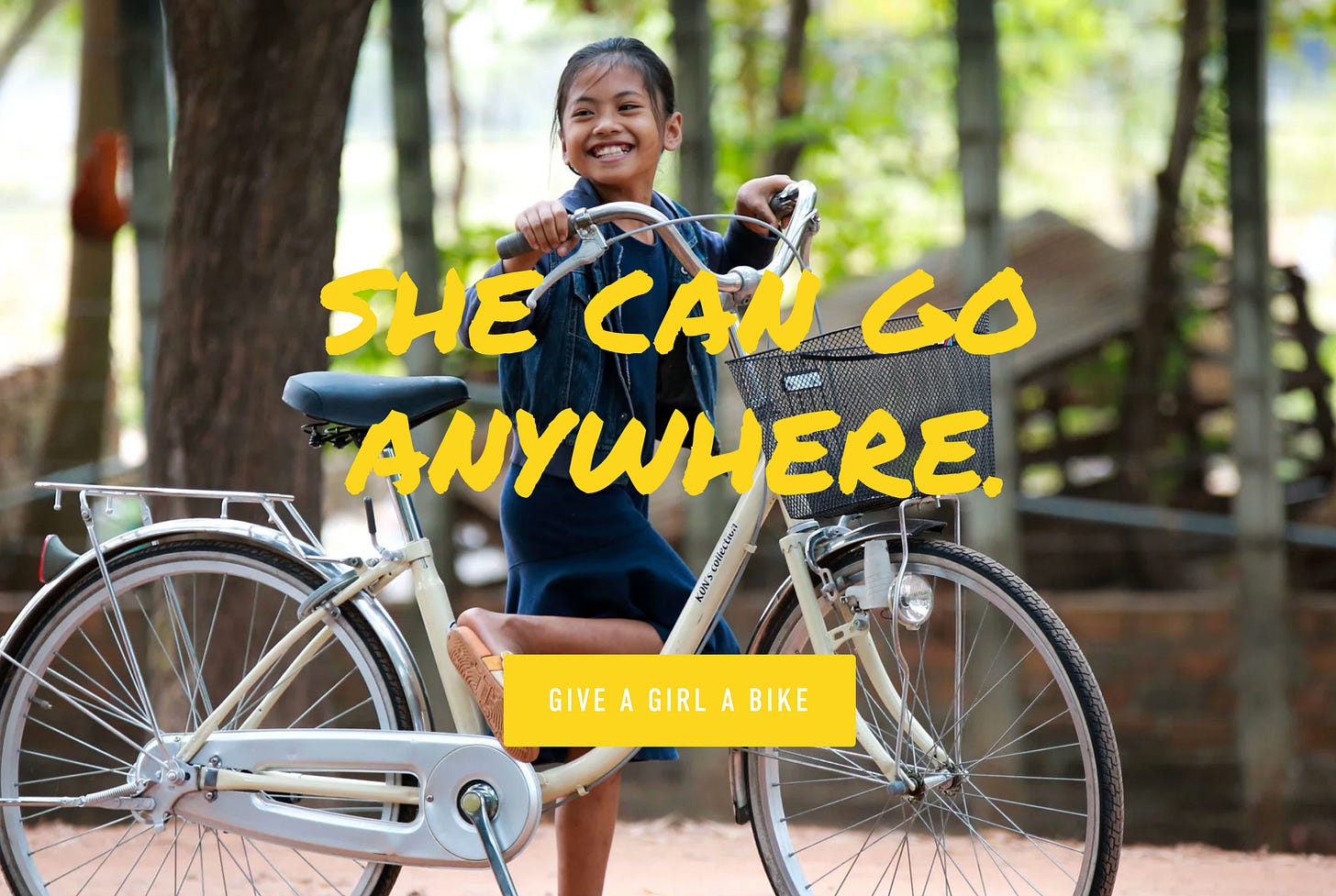
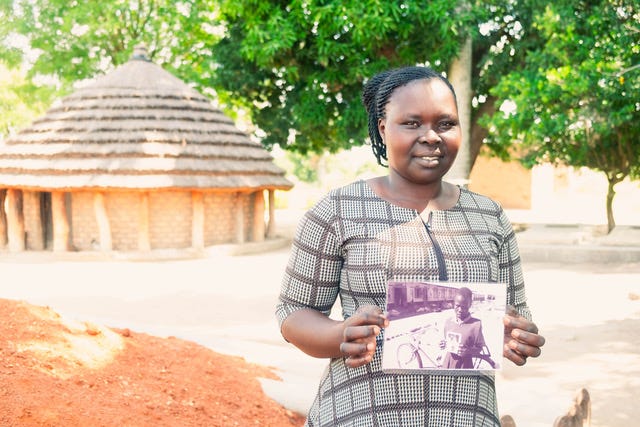
What an inspiring story! It’s amazing how a bike can open up opportunities and last for years. I'm really excited to hear more stories about your trips, you definitely should write more.
I'm excited to hear more about your trip. Thank you for your heart for these women.